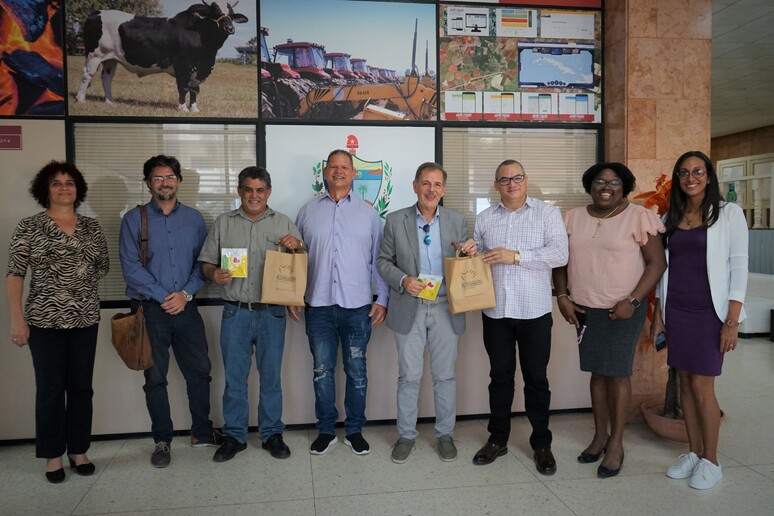In a joint effort with the Cuban Ministry of Agriculture and the Institute for Agro-Forestry Research (Inaf) - counterparts of the Italian initiatives Cambio Climatico Cuba (Ccc) and MásCafé - the Italian Agency for Development Cooperation (AICS) in Havana delivered seeds to recover crops as part of a larger donation to support production activities in Guantánamo affected by Hurricane Oscar last October.
During a meeting at the Cuban Ministry's headquarters, the Deputy Minister of Agriculture, Maury Hechavarría Bermúdez, together with the Director General of the Ministry, Yojan García Roda, the Head of the National Programme for Coffee, Cocoa and Coconut, Ramón Ramos Nava, and the Head of the Department for International Cooperation, Alamys Matínez Torres, welcomed AICS representatives to define the intervention strategy and receive the first part of the seeds. The remainder will be distributed to 20 farms in the municipalities of San Antonio del Sur, Imias, Maisí, Baracoa and Guantánamo. Other seeds of different varieties will be purchased during the coming months according to production cycles.
Thanks to the cooperation between Cuba and Italy, which has been working on coffee and sustainable agriculture in the eastern part of the country for a decade, strategies have been developed to mitigate the effects of climate change and respond to emergencies such as this one. The donated seeds, of high quality, will be sown in a staggered manner to assess their behaviour in different climatic conditions, thus ensuring successful production.
In collaboration with the Institute for Fundamental Research in Tropical Agriculture (Inifat) and the Institute for Agroforestry Research (Inaf), local experts plan to sow some of the seeds in February and March in the casas de postura (greenhouses for seedling production) of San Antonio del Sur, while the rest will be planted directly by the producers during the cold season. This approach will optimise the results and adapt the crops to the specific environmental conditions.
The initiative not only supports the economic recovery of affected communities, but also promotes sustainable production processes and the strengthening of small and medium-sized agricultural enterprises. It also aims to improve the resilience of local communities, preparing them for future extreme weather events through adaptation and mitigation strategies.
ALL RIGHTS RESERVED © Copyright ANSA











